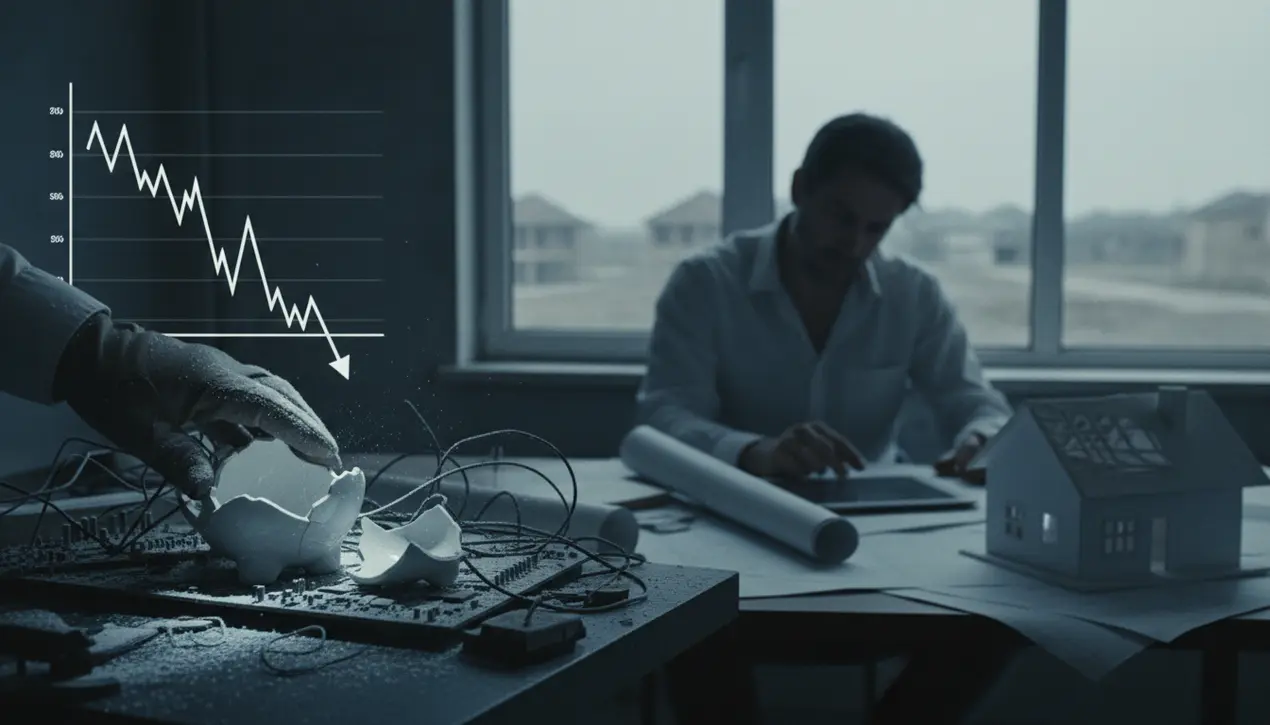
FinancemarketsMarket Volatility
This week in business: A housing plateau and AI reality check
DA
David Collins
14 hours ago7 min read1 comments
This week in business felt like a brutal reality check for anyone who thought the party would last forever. After years of watching digital assets scream into the stratosphere and AI stocks defy gravity, we’re getting a stark reminder that the old rules still apply: what goes up must come down.The charts for crypto giants like Bitcoin and XRP are now flashing ominous signals like the 'death cross,' a technical pattern that sends shivers down the spines of even the most hardened traders. XRP, the token tied to Ripple's ledger, has been hammered, plummeting to around $2.13—a staggering 26% drop from its position just three months ago and a far cry from its July peak of $3. 65.This collapse is happening despite the recent launch of three XRP-focused exchange-traded funds, including Canary Capital’s XRPC, which itself has already tanked about 11% as large holders reportedly dumped 200 million XRP in a mere 48 hours. This isn't just isolated panic; it's part of a broader risk-off mood sweeping the markets.Investors are finally waking up to the possibility that the tech and AI bubble might be overinflated, coupled with growing economic uncertainty and dwindling hopes for imminent Federal Reserve rate cuts. Bitcoin itself hasn't been spared, recently giving up all its gains for 2025 and sinking to around $94,000, a painful slide from October highs above $124,000.This is the market cleansing itself, shaking out the weak hands and the speculators who thought the only direction was up. It’s a necessary, if painful, correction that separates the true believers from the tourists.Meanwhile, in the traditional economy, the housing market is entering what Moody's Analytics chief economist Mark Zandi predicts will be a 'long plateau. ' He forecasts that U.S. home prices will essentially tread water for the next decade, rising roughly in line with inflation but delivering no real gains once you adjust for it.This is the hangover from the pandemic-era buying frenzy, compounded by the mortgage rate shock that has frozen existing home sales. Zandi points to nominal home prices climbing about 23.5% between December 2025 and December 2035, but that's just a number on paper; the real value is stagnant. He also highlights long-term headwinds like restrictive immigration policies that could cripple construction labor and higher Treasury yields that may keep mortgage rates stubbornly near 6%.This isn't a market crash; it's a slow, grinding normalization that will test the patience of everyone involved. And then there's the political theater, which increasingly functions as a parallel economy of attention and influence.A clip of President Donald Trump dismissing a Bloomberg reporter with a juvenile 'Quiet, Piggy' insult has gone viral, morphing into a memetic weapon used against him and his allies on platforms like X and Bluesky. This taps into his long-established pattern of attacking women and the press, a strategy that now fuels a backlash he cannot control.At the same time, New York City Mayor-elect Zohran Mamdani has been instantly anointed as conservative media's newest villain, labeled a communist and 'jihadist sympathizer' for his membership in the Democratic Socialists of America and his Muslim faith. The New York Post is already monetizing this outrage, selling merchandise featuring his image and cementing his role as a polarizing national figure.Even consumer behavior is being weaponized, with campaigns like 'Mass Blackout' and 'We Ain’t Buying It' urging Americans to boycott Black Friday and major retailers like Target, Home Depot, and Amazon to protest Trump-era policies and corporate alignment. This is economic noncooperation framed as a political statement in an economy where the wealth gap continues to widen.In the corporate world, Verizon is slashing 13,000 jobs, a brutal 20% of its non-union management workforce, in a bid to 'reorient' around customers and free up cash. And tech investors endured a roller-coaster ride; Nvidia's blowout earnings initially sent its stock soaring nearly 5%, briefly lifting the entire 'Magnificent Seven,' only for those gains to be erased by fears of an AI bubble and fading confidence in a December Fed rate cut. This is the new normal: a market grappling with the end of easy money, a housing market in stasis, and a political culture where every event—from a stock split at Netflix to a viral insult—becomes a referendum on power.
#featured
#housing market
#AI stocks
#crypto decline
#Netflix stock split
#holiday boycotts
#Verizon layoffs
Stay Informed. Act Smarter.
Get weekly highlights, major headlines, and expert insights — then put your knowledge to work in our live prediction markets.
Related News
Comments
Loading comments...
© 2025 Outpoll Service LTD. All rights reserved.